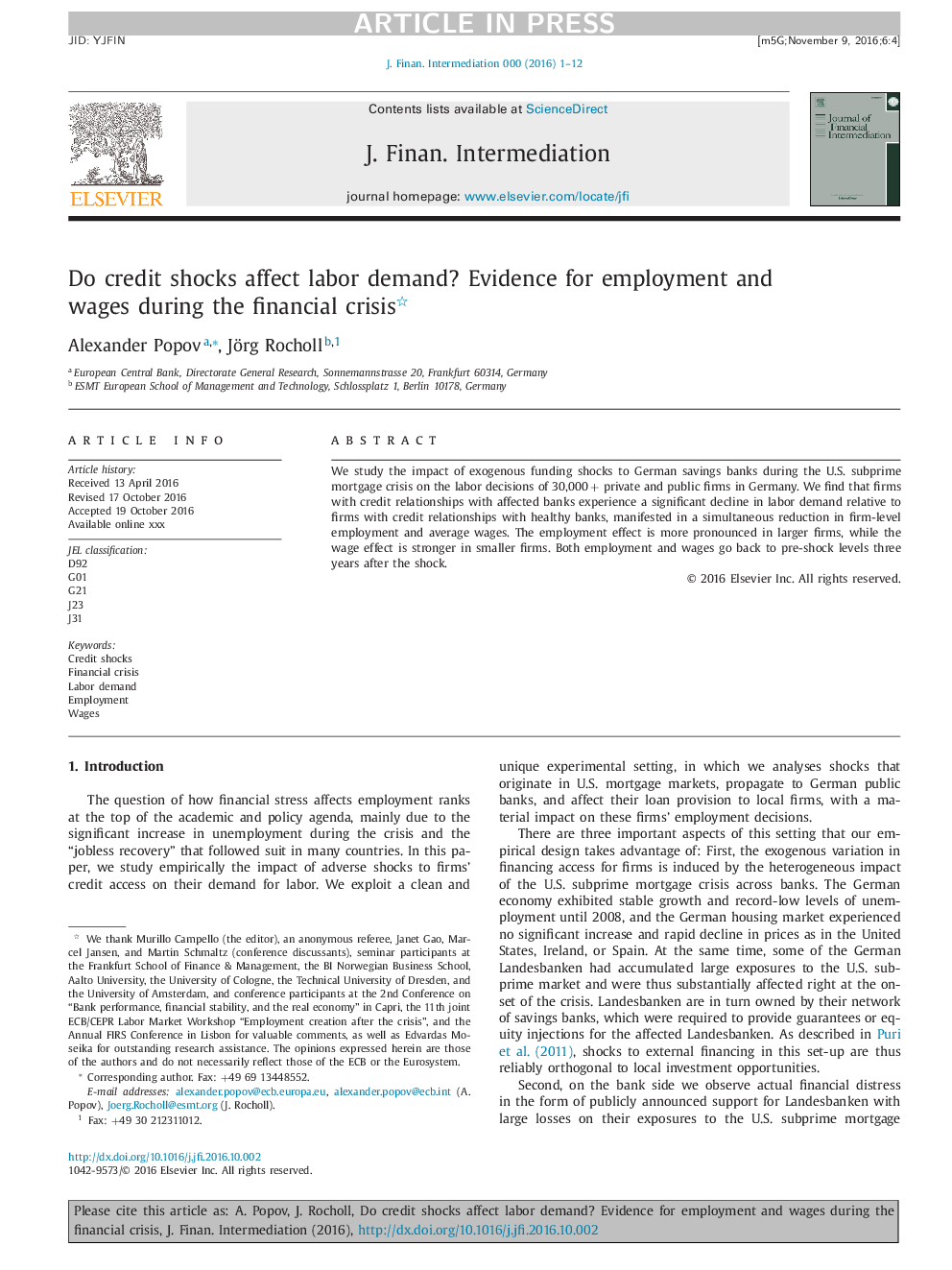| Article ID | Journal | Published Year | Pages | File Type |
|---|---|---|---|---|
| 11020460 | Journal of Financial Intermediation | 2018 | 12 Pages |
Abstract
We study the impact of exogenous funding shocks to German savings banks during the U.S. subprime mortgage crisis on the labor decisions of 30,000â+ private and public firms in Germany. We find that firms with credit relationships with affected banks experience a significant decline in labor demand relative to firms with credit relationships with healthy banks, manifested in a simultaneous reduction in firm-level employment and average wages. The employment effect is more pronounced in larger firms, while the wage effect is stronger in smaller firms. Both employment and wages go back to pre-shock levels three years after the shock.
Related Topics
Social Sciences and Humanities
Business, Management and Accounting
Strategy and Management
Authors
Alexander Popov, Jörg Rocholl,
